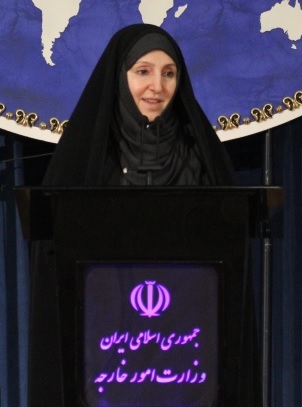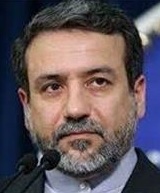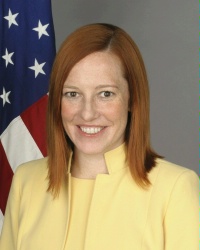On December 13, Iran’s foreign ministry slammed Washington for blacklisting more than a dozen companies and individuals for sanctions evasion. “The U.S. administration is fully responsible for the consequences of these indiscrete measures,” said Foreign Spokesperson Marziyeh Afkham. She acknowledged the Obama administration’s attempt to persuade Congress to hold off on new sanctions. But Afkham argued that sanctioning companies and individuals under existing sanctions is a “questionable move” that demonstrates “serious confusion” in U.S. policy. The chairman of parliament’s National Security and Foreign Policy Committee, Alaeddin Boroujerdi, called the blacklisting a “flagrant violation of the Geneva nuclear accord.”
In Vienna, expert-level talks between Iran and the world’s six major powers halted just hours after Washington imposed the sanctions. “America's move is against the spirit of the Geneva deal,” said Deputy Foreign Minister Abbas Araghchi on the way back to Tehran. The team decided to return for consultations before continuing discussions on implementing the November 24 nuclear agreement. “After four days of lengthy and detailed talks, reflecting the complexity of the technical issues discussed, it became clear that further work is needed,” said Michael Mann, a spokesman for E.U. foreign policy chief Catherine Ashton. He clarified that officials would return to their capitals with the “expectation that technical talks will continue soon.”
When asked about the halted talks, U.S. Spokesperson Jen Psaki said pausing to consult a “normal part of the process in developing the implementation plan.” The following are excerpted remarks by Iranian and American officials.
 “On the one hand, U.S. administration officials are seemingly persuading Congress to refrain from passing fresh sanctions against the Islamic Republic of Iran within the framework of furtherance of the Joint Plan of Action between the Islamic Republic of Iran and the P5+1. On the other hand, in a questionable move, the U.S. Treasury and State Department... have blacklisted firms from Iran and a number of foreign countries in an unconstructive measure.”
“On the one hand, U.S. administration officials are seemingly persuading Congress to refrain from passing fresh sanctions against the Islamic Republic of Iran within the framework of furtherance of the Joint Plan of Action between the Islamic Republic of Iran and the P5+1. On the other hand, in a questionable move, the U.S. Treasury and State Department... have blacklisted firms from Iran and a number of foreign countries in an unconstructive measure.” “This is a game of double standards — it is not in accord with the talks we have had and it is against the spirit of the Geneva agreement… We are evaluating the situation and will make the appropriate response.”
“This is a game of double standards — it is not in accord with the talks we have had and it is against the spirit of the Geneva agreement… We are evaluating the situation and will make the appropriate response.”Dec. 13, 2013 to the press
 “Undoubtedly, the latest U.S. move to blacklist a number of Iranian companies and institutions is the flagrant violation of the Geneva nuclear accord, and the US officials revealed that they are not trustworthy.
“Undoubtedly, the latest U.S. move to blacklist a number of Iranian companies and institutions is the flagrant violation of the Geneva nuclear accord, and the US officials revealed that they are not trustworthy.
 “We’ve been hard at it in Vienna, a lot of discussions taking place. I've talked with Cathy Ashton the last days. We’re making progress, but I think we’re at a point in those talks where folks feel a need to consult, take a moment. There is every expectation that talks are going to continue in the next few days, and that we will proceed to the full implementation of that plan. This is sort of the normal part of the process in developing the implementation plan.”
“We’ve been hard at it in Vienna, a lot of discussions taking place. I've talked with Cathy Ashton the last days. We’re making progress, but I think we’re at a point in those talks where folks feel a need to consult, take a moment. There is every expectation that talks are going to continue in the next few days, and that we will proceed to the full implementation of that plan. This is sort of the normal part of the process in developing the implementation plan.”
Photo credits: www.mfa.gov.ir, http://rc.majlis.ir, www.state.gov
